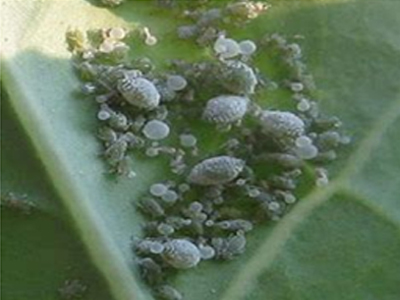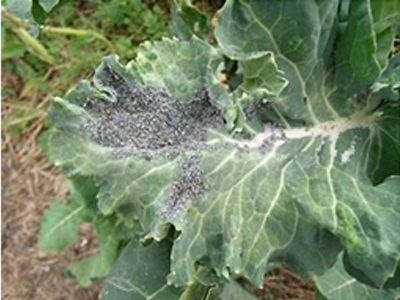Cauliflower Aphid (Lipaphis erysimi ) on Cauliflower
Cauliflower (Brassica tolerance var. botrytis) belongs to the family Cruciferae and is one of the oldest cultivated vegetables. The edible portion of cauliflower contains calories, carbohydrates, dietary fibers, proteins, etc. Cauliflower consumption has been studied for its cancer-preventing potential and antioxidant properties. The word “cauliflower” is derived from the Latin word “caulis” meaning stalk and “floris” meaning flower. It belongs to the family Cruciferae and is one of the oldest cultivated vegetables. Cauliflower is cultivated extensively in tropical and temperate regions of the world including India. Cauliflower consumption has been studied for its cancer-preventing potential and antioxidant properties.
In India, the major cauliflower-producing states are West Bengal, Bihar, Madhya Pradesh, Odisha, Gujarat, Haryana, Assam, Jharkhand, Chhattisgarh, Uttar Pradesh, and Maharastra. In Uttarakhand, cauliflower is a major off-season vegetable crop covering an area of 3050.27 hectare with an annual production of 39134.63 MT (shm.gov.in 2017-18).
Aphid Details
Cauliflower is attacked by more than 24 insect pest species. Three different species of aphids viz Lipaphis erysimi , Bravicornae brassicas and Myzus persicae attack the cauliflower crop. The Cauliflower aphid ( Lipaphis erysimi ) is a serious insect pest that can heavily infest cauliflower crops. Among these pests cauliflower aphids (L. erysimi) are one of the most important pests of cauliflower which belongs to the order Hemiptera and family Aphididae. Cauliflower aphids are greyish-green in color with a waxy covering that gives them a greyish-white appearance. Adults are present in both wingless and winged forms. They are small and soft-bodied insects. Both adults and nymphs of aphids suck sap from plants and secret honeydew causing secondary Both adult and immature stages of coccinellid beetle prey upon a wide variety of aphid species and are reported as potential predators of aphids and manage the pest population in the field (Afroz., 2001). Besides aphids, they also feed upon a variety of pests viz., leaf-hoppers, scale insects, mealy bugs, mites, and other soft-bodied insects.
Management
Imidacloprid 17.8 SL @ 0.0178% and thiamethoxam 25 WG @ 50 g a.i./ha, oxydemetonmethyal 25 EC @ 0.025%, and monocrotophos 36 EC @ 0.036% proved most effective insecticides against aphid, L. erysimi on mustard. Botanicals like Plant extracts like –Ginger rhizome extract, garlic bulb, turmeric rhizome, and essential oil of lemon grass, rosemary, etc are also effective to control cauliflower aphids.


Assistant Professor
Krishan Kant Saklani
Dept. of Agrosciences

